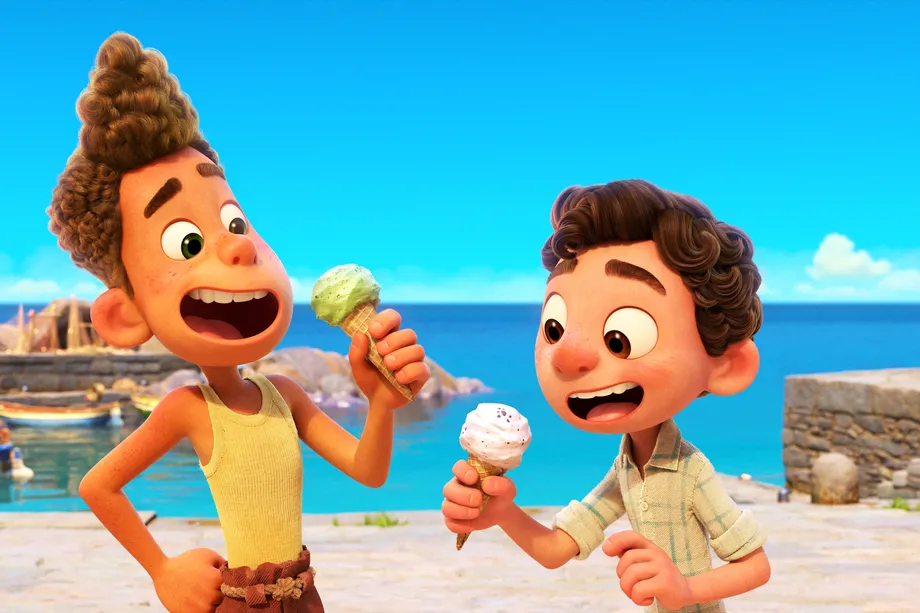At Least Leave It Up For Interpretation

by Joseph Oscilowski ’22
The Disney Pixar film Luca was one of the most popular animations released this summer. This coming-of-age movie follows a pre-teen fish boy named Luca with the desire to be free, escaping to the town of the “land monsters” with the help of his friend Alberto. There, the pair learn how to live as humans–a very contrasting life to their previous fish life–befriending the very creatures they had been raised to be cautious of.
One of the main reasons this movie grew so popular was that many audiences recognized its strong gay subtext. Many viewers believed this movie portrayed gay love in a very beautiful way, with many similarities to the movie Call Me By Your Name, a popular gay romance. Fans were ecstatic to see such good representation of gay love in a Disney Pixar movie as it’s often lacking. Many posts on all social media platforms were made by fans expressing their admiration and positive sentiments towards the movie.
Unfortunately, a few months after the movie’s release, director Enrico Casarosa clarified the movie’s intent in an interview. In summary, Casarosa explained that the movie is about kids’ lives before love comes into play and about developing friendships, basically shutting down the views of many that the movie is about gay love. This statement had many fans, including myself, upset at Casarosa.
In a way, I can see where the director is coming from. It is important for the media to be able to portray two males or two females in a close relationship as simply friends. However, especially with Disney, gay representation is so lacking that it would have been nice to not have this movie shut down as a gay romance. Luca was beautifully made; it demonstrated the growth of a very close friendship between two boys who started as strangers while dealing with themes of striving for acceptance in an otherwise unaccepting society, contrasting with a lot of gay movies and TV shows that focus more so on the negativity in a gay relationship such as bullying, cheating, and breakups. It was nice to see Luca and Albert grow close, even if it wasn’t outright gay romance.
The reason Casarosa’s statement bothered me and others is that there was no need to dismiss the subtext that Luca and Albert love each other as more than friends. His reasoning for doing so is that they were too young, but experts in child development have said that kids develop their first crush at age 5 or 6. If Casarosa had simply not said anything, this movie would have still been a great representation of gay love for many while also being a very cute movie about two friends for others. By leaving the subtext up to watchers’ interpretations, everyone wins. However, Casarosa went out of his way to turn down the idea of it being a gay love story. Once again the LGBT+ community is struck down, with currently the only officially confirmed LGBT+ character in the Disney world being a purple lesbian cyclops side character from the movie Onward, a pretty questionable form of representation.
Whether or not the LGBT+ representation in this movie was intended, it is definitely present. I hope someday society can move to the point where we can proudly say, “This movie could represent gay love, and that is perfectly alright.”